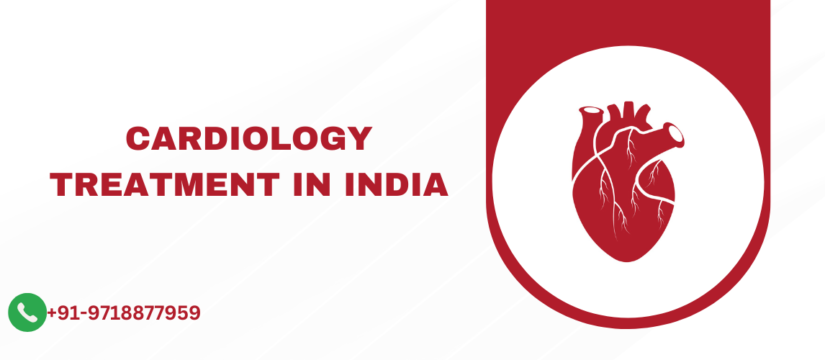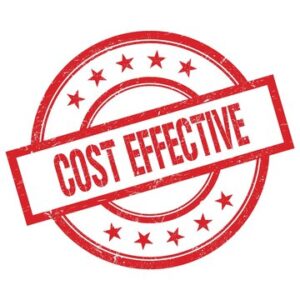
Cardiology Treatment in India: Your Journey to a Stronger Heart
- August 6, 2024
- 0 Likes
- 62 Views
- 0 Comments
India has emerged as a global leader in providing advanced medical care, particularly in the field of cardiology. With state-of-the-art facilities, cutting-edge technology, and highly skilled cardiologists, India offers a compelling destination for international patients seeking high-quality heart care at an affordable cost. This blog explores why India is an ideal choice for cardiology treatment and how international patients can benefit from the world-class medical services available.
Advanced Medical Infrastructure
 India’s hospitals are equipped with the latest medical technology, ensuring accurate diagnostics and effective treatments. Leading medical institutions such as Fortis Escorts Heart Institute, Medanta – The Medicity, and Apollo Hospitals are renowned for their advanced cardiology departments. These hospitals boast specialized units for interventional cardiology, cardiac surgery, and pediatric cardiology, providing comprehensive care for all heart-related conditions.
India’s hospitals are equipped with the latest medical technology, ensuring accurate diagnostics and effective treatments. Leading medical institutions such as Fortis Escorts Heart Institute, Medanta – The Medicity, and Apollo Hospitals are renowned for their advanced cardiology departments. These hospitals boast specialized units for interventional cardiology, cardiac surgery, and pediatric cardiology, providing comprehensive care for all heart-related conditions.
Expertise of Cardiologists
 Indian cardiologists are globally recognized for their expertise and experience. Many have trained and practiced in prestigious institutions worldwide, bringing a wealth of knowledge and cutting-edge techniques back to India. Surgeons with over 29 years of specialization in cardiac surgeries and a record of more than 19,000 open-heart surgeries, exemplify the high level of skill and dedication found in India.India offers world-class cardiac care at a fraction of the cost compared to many Western countries, without compromising on quality or patient outcomes. Patients from around the globe have benefited from the exceptional expertise and compassionate care provided by Indian cardiac specialists. Don’t wait to prioritize your heart health. Contact us today to explore how India’s leading cardiac specialists can provide you with the care you deserve. Our dedicated team is committed to guiding you through your cardiac journey, from initial consultation to complete recovery.
Indian cardiologists are globally recognized for their expertise and experience. Many have trained and practiced in prestigious institutions worldwide, bringing a wealth of knowledge and cutting-edge techniques back to India. Surgeons with over 29 years of specialization in cardiac surgeries and a record of more than 19,000 open-heart surgeries, exemplify the high level of skill and dedication found in India.India offers world-class cardiac care at a fraction of the cost compared to many Western countries, without compromising on quality or patient outcomes. Patients from around the globe have benefited from the exceptional expertise and compassionate care provided by Indian cardiac specialists. Don’t wait to prioritize your heart health. Contact us today to explore how India’s leading cardiac specialists can provide you with the care you deserve. Our dedicated team is committed to guiding you through your cardiac journey, from initial consultation to complete recovery.
Minimally Invasive and Advanced Surgical Techniques
 India is at the forefront of adopting minimally invasive and advanced surgical techniques in cardiology. Procedures such as minimally invasive coronary artery bypass surgery, transcatheter aortic valve replacement (TAVR), and robotic cardiac surgeries are routinely performed with high success rates. These techniques offer several benefits, including reduced pain, shorter hospital stays, faster recovery times, and minimal scarring. Don’t delay seeking expert care. Contact us today for a comprehensive evaluation and personalized treatment plan. Our team is dedicated to delivering exceptional care tailored to your specific needs.
India is at the forefront of adopting minimally invasive and advanced surgical techniques in cardiology. Procedures such as minimally invasive coronary artery bypass surgery, transcatheter aortic valve replacement (TAVR), and robotic cardiac surgeries are routinely performed with high success rates. These techniques offer several benefits, including reduced pain, shorter hospital stays, faster recovery times, and minimal scarring. Don’t delay seeking expert care. Contact us today for a comprehensive evaluation and personalized treatment plan. Our team is dedicated to delivering exceptional care tailored to your specific needs.
Angioplasty is a procedure used to open blocked coronary arteries caused by coronary artery disease. It restores blood flow to the heart muscle without open-heart surgery. Angioplasty can be done in an emergency setting such as a heart attack.
Aortic Valve Replacement (AVR) is a surgical procedure to replace a malfunctioning aortic valve with a prosthetic valve. The aortic valve controls blood flow from the heart to the aorta and the rest of the body. When this valve is damaged or diseased, it can impair blood flow, leading to symptoms like chest pain, shortness of breath, and heart failure.
Heart failure treatment includes lifestyle changes, medications (ACE inhibitors, beta-blockers, diuretics), device therapy (pacemakers, defibrillators), and surgery (bypass, valve repair/replacement). These approaches aim to improve heart function, manage symptoms, and enhance quality of life.
Pediatric cardiac surgery involves surgical procedures to repair congenital or acquired heart defects in infants and children. Common surgeries include repairing septal defects, correcting valve abnormalities, and addressing complex congenital conditions like Tetralogy of Fallot. These surgeries aim to improve heart function, enhance quality of life, and ensure normal development.
Transcatheter Aortic Valve Replacement (TAVR), also known as Transcatheter Aortic Valve Implantation (TAVI), is a minimally invasive procedure used to replace a narrowed aortic valve that fails to open properly (aortic stenosis). The procedure involves inserting a catheter through a blood vessel, usually in the groin, and guiding it to the heart where a new valve is deployed. TAVR is an alternative to open-heart surgery, particularly for patients who are at high risk for surgical complications. Benefits include shorter recovery time, reduced pain, and quicker return to daily activities.
A pacemaker insertion is the implantation of a small electronic device that is usually placed in the chest (just below the collarbone) to help regulate slow electrical problems with the heart. A pacemaker may be recommended to ensure that the heartbeat does not slow to a dangerously low rate. You need surgery to get a pacemaker. The device is placed under the skin near the collarbone. A pacemaker also is called a cardiac pacing device.
Double Valve Replacement (DVR) is a surgical procedure where both the aortic and mitral valves are replaced. This is typically necessary when both valves are damaged or diseased, leading to severe heart function impairment. The procedure can be performed through traditional open-heart surgery or minimally invasive techniques. Replacement valves can be mechanical (durable but require lifelong blood thinners) or biological (less durable but typically do not require long-term blood thinners). DVR aims to restore normal blood flow through the heart, alleviate symptoms, and improve overall heart function and patient quality of life.
Coronary Artery Bypass Grafting (CABG) is a surgical procedure to improve blood flow to the heart. It involves taking a blood vessel from another part of the body (usually the leg, arm, or chest) and using it to bypass a blocked or narrowed coronary artery. This rerouted blood flow helps to supply oxygen and nutrients to the heart muscle, relieving chest pain (angina), improving heart function, and reducing the risk of heart attack. CABG is commonly recommended for patients with severe coronary artery disease that cannot be treated with medication or other interventions like angioplasty.
Tetralogy of Fallot is a rare heart condition that is present at birth. That means it’s a congenital heart defect. A baby born with the condition has four different heart problems. These heart problems affect the structure of the heart. The condition causes altered blood flow through the heart and to the rest of the body. Babies with tetralogy of Fallot often have blue or gray skin color due to low oxygen levels. Tetralogy of Fallot is usually diagnosed during pregnancy or soon after a baby is born. If the heart changes and symptoms are mild, tetralogy of Fallot may not be noticed or diagnosed until adulthood. People who are diagnosed with tetralogy of Fallot need surgery to fix the heart. Tetralogy of Fallot occurs as the baby’s heart grows during pregnancy. Usually, the cause is unknown.
Cost-Effective Treatment
 One of the most significant advantages of seeking cardiology treatment in India is the cost-effectiveness. Despite offering world-class medical care, the cost of treatments in India is significantly lower compared to Western countries. This affordability extends to all aspects of medical care, including consultations, diagnostic tests, surgical procedures, and post-operative care. Patients can receive top-notch treatment without the financial burden often associated with healthcare in other parts of the world. Patients can enjoy significant savings without compromising on quality or outcomes. This affordability, combined with India’s renowned medical expertise, makes it an increasingly attractive option for patients worldwide seeking top-tier cardiac treatment. Don’t let the high cost of cardiac care hold you back. Contact us today to explore how you can benefit from world-class cardiac treatment at a fraction of the cost. Our dedicated team is ready to assist you in every step of your healthcare journey.
One of the most significant advantages of seeking cardiology treatment in India is the cost-effectiveness. Despite offering world-class medical care, the cost of treatments in India is significantly lower compared to Western countries. This affordability extends to all aspects of medical care, including consultations, diagnostic tests, surgical procedures, and post-operative care. Patients can receive top-notch treatment without the financial burden often associated with healthcare in other parts of the world. Patients can enjoy significant savings without compromising on quality or outcomes. This affordability, combined with India’s renowned medical expertise, makes it an increasingly attractive option for patients worldwide seeking top-tier cardiac treatment. Don’t let the high cost of cardiac care hold you back. Contact us today to explore how you can benefit from world-class cardiac treatment at a fraction of the cost. Our dedicated team is ready to assist you in every step of your healthcare journey.
- Automatic Implantable Cardioverter Defibrillator(AICD)- USD $13000 Onwards
- Permanent Pacemaker Implant- USD $7000 Onwards
- Valvuplasty- USD $3000 Onwards
- Vericose Vein- USD $3300 Onwards
- Coronary Angiography- USD $400 Onwards
- VSD Closure / Device (Adult)- USD $5000 Onwards
- Coronary Heart Disease- USD $400 Onwards
- Double Heart Valve Replacement- USD $9500 Onwards
- Aortic/Mitral Valve Replacement- USD $7500 Onwards
- ASD Closure / Device (Adult)- USD $4700 Onwards
- ASD / VSD Closure- USD $5100 Onwards
- CABG Treatment- USD $5000 Onwards
- Angioplasty- USD $4400 Onwards
- TOF / DORV / GLENN- USD $5500
- Automatic Implantable Cardioverter Defibrillator(AICD)- USD $16000 Onwards
- Permanent Pacemaker Implant- USD $9000 Onwards
- Valvuplasty- USD $5000 Onwards
- Vericose Vein- USD $4000 Onwards
- Coronary Angiography- USD $900 Onwards
- VSD Closure / Device (Adult)- USD $8000 Onwards
- Coronary Heart Disease- USD $600 Onwards
- Double Heart Valve Replacement- USD $1100 Onwards
- Aortic/Mitral Valve Replacement- USD $9000 Onwards
- ASD Closure / Device (Adult)- USD $5000 Onwards
- ASD / VSD Closure- USD $5500 Onwards
- CABG Treatment- USD $7000 Onwards
- Angioplasty- USD $4200 Onwards
- TOF / DORV / GLENN- USD $5800
- Automatic Implantable Cardioverter Defibrillator(AICD)- USD $19000 Onwards
- Permanent Pacemaker Implant- USD $11000 Onwards
- Valvuplasty- USD $8000 Onwards
- Vericose Vein- USD $6000 Onwards
- Coronary Angiography- USD $1000 Onwards
- VSD Closure / Device (Adult)- USD $10000 Onwards
- Coronary Heart Disease- USD $900 Onwards
- Double Heart Valve Replacement- USD $3000 Onwards
- Aortic/Mitral Valve Replacement- USD $11000 Onwards
- ASD Closure / Device (Adult)- USD $8000 Onwards
- ASD / VSD Closure- USD $8000 Onwards
- CABG Treatment- USD $9000 Onwards
- Angioplasty- USD $6000 Onwards
- TOF / DORV / GLENN- USD $7000
- Automatic Implantable Cardioverter Defibrillator(AICD)- USD $21000 Onwards
- Permanent Pacemaker Implant- USD $15000 Onwards
- Valvuplasty- USD $11000 Onwards
- Vericose Vein- USD $8000 Onwards
- Coronary Angiography- USD $4000 Onwards
- VSD Closure / Device (Adult)- USD $15000 Onwards
- Coronary Heart Disease- USD $1000 Onwards
- Double Heart Valve Replacement- USD $5000 Onwards
- Aortic/Mitral Valve Replacement- USD $19000 Onwards
- ASD Closure / Device (Adult)- USD $10000 Onwards
- ASD / VSD Closure- USD $10000 Onwards
- CABG Treatment- USD $12000 Onwards
- Angioplasty- USD $10000 Onwards
- TOF / DORV / GLENN- USD $10000
- Automatic Implantable Cardioverter Defibrillator(AICD)- USD $22000 Onwards
- Permanent Pacemaker Implant- USD $18000 Onwards
- Valvuplasty- USD $13000 Onwards
- Vericose Vein- USD $10000 Onwards
- Coronary Angiography- USD $5000 Onwards
- VSD Closure / Device (Adult)- USD $16000 Onwards
- Coronary Heart Disease- USD $3000 Onwards
- Double Heart Valve Replacement- USD $7000 Onwards
- Aortic/Mitral Valve Replacement- USD $21000 Onwards
- ASD Closure / Device (Adult)- USD $15000 Onwards
- ASD / VSD Closure- USD $15000 Onwards
- CABG Treatment- USD $15000 Onwards
- Angioplasty- USD $15000 Onwards
- TOF / DORV / GLENN- USD $15000
- Automatic Implantable Cardioverter Defibrillator (AICD): Typically higher, ranging from $25,000 to $50,000 or more.
- Permanent Pacemaker Implant: Usually higher, ranging from $10,000 to $25,000 or more.
- Valvuloplasty: Generally higher, ranging from $10,000 to $30,000 or more.
- Varicose Vein Treatment: Often higher, ranging from $4,000 to $7,000 or more.
- Coronary Angiography: Typically higher, ranging from $2,000 to $5,000 or more.
- VSD Closure (Adult): Generally higher, ranging from $10,000 to $30,000 or more.
- Coronary Heart Disease Treatment: Costs can vary widely, often exceeding $10,000 or more.
- Double Heart Valve Replacement: Usually higher, ranging from $30,000 to $50,000 or more.
- Aortic/Mitral Valve Replacement: Typically higher, ranging from $30,000 to $50,000 or more.
- ASD Closure (Adult): Generally higher, ranging from $10,000 to $30,000 or more.
- ASD/VSD Closure: Typically higher, ranging from $15,000 to $30,000 or more.
- Coronary Artery Bypass Grafting (CABG): Costs can vary widely, often exceeding $30,000 to $100,000 or more.
- Angioplasty: Typically higher, ranging from $15,000 to $50,000 or more.
- TOF/DORV/GLENN: Generally higher, ranging from $20,000 to $50,000 or more
Comprehensive Care and Support
 Indian hospitals provide a holistic approach to patient care, ensuring that international patients receive personalized attention throughout their medical journey. From initial consultations and treatment planning to surgery and rehabilitation, every step is carefully managed. Many hospitals have dedicated international patient departments to assist with travel arrangements, visa processes, accommodation, and language translation services, making the entire experience smooth and stress-free.
Indian hospitals provide a holistic approach to patient care, ensuring that international patients receive personalized attention throughout their medical journey. From initial consultations and treatment planning to surgery and rehabilitation, every step is carefully managed. Many hospitals have dedicated international patient departments to assist with travel arrangements, visa processes, accommodation, and language translation services, making the entire experience smooth and stress-free.
Success Rate
*The success rate of cardiology treatments in India is reported to be very high, with some sources claiming it to be near 100%. This suggests that patients undergoing heart-related treatments in India experience positive outcomes with minimal complications. However, in other countries, the success rates might not be as high, and there are reports of more frequent complications.
*It’s important to understand that the success of cardiology treatments can vary widely based on several factors, including the type of treatment, the patient’s overall health, the stage of heart disease, and the quality of healthcare facilities and technologies available. India has made significant advancements in cardiology, with state-of-the-art medical facilities and highly skilled cardiologists, which contribute to its high success rates.
*However, it’s also crucial to critically evaluate any claim of a 100% success rate in medical treatments, as there are always risks and potential for complications, no matter how advanced the healthcare system is. Success rates can provide a general idea of the effectiveness of treatments, but individual outcomes can vary.
Conclusion
India stands out as a premier destination for cardiology treatment, offering a combination of advanced medical infrastructure, expert cardiologists, cost-effective care, and comprehensive patient support. International patients seeking world-class heart care can confidently choose India, knowing they will receive exceptional treatment that prioritizes their health and well-being. By reaching out to renowned hospitals and specialists, patients can embark on a journey toward better heart health and improved quality of life.
For those considering cardiology treatment, India is not just an option—it is a destination that promises excellence, affordability, and compassionate care.
If you are an international patient seeking cardiology treatment in India, contact us today to learn more about our services and how we can assist you in your medical journey. Your heart deserves the best, and in India, the best is what you will find.
- Tags
- Advanced Medical Infrastructure
- Angioplasty
- Aortic Valve Replacement
- CABG
- Cardiology
- Cardiology Treatment in India
- Comprehensive Care and Support
- Cost-Effective Treatment
- Double Valve Replacement
- Expertise of Cardiologists
- Hear Failure
- Minimally Invasive and Advanced Surgical Techniques
- Pacemaker
- Pediatric Cardiac Treatment
- Robotic cardiac surgeries
- TAVI/TAVR Surgery
- TAVR
- Tetralogy of Fallot

Leave Your Comment